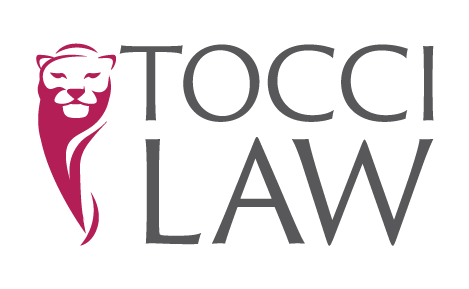What is “Criminal Possession of a Controlled Substance” in the State of New York? Does that include marijuana? Is the same charge issued for possessing heroin, cocaine, marijuana or prescription pills?
First, what is a controlled substance?
In New York, the law states that any substance listed in schedule I, II, III IV, and V, in § 3306 of the New York Public Health Law and concentrated cannabis. The listed substances are numerous, including nearly all drugs with a recognized potential for abuse and addiction. Here are some that are common (this list is by no means exhaustive):
Recreational Drugs: cocaine, crack, heroin, ecstasy, opium, concentrated
(No accepted medical use) cannabis, Ketamine, Peyote
Pain Medications: Vicodin, Percocet, Codeine, Morphine, Fentanyl, Oxycodone, Oxycontin, Methadone
ADD/ADHD Medications: Adderall, Vyvance, Concerta, Ritalin
Hallucinogenic: Mushrooms, LSD, Mescaline
Depressants: Xanax, Ambien
All of the above substances can be the basis of the any controlled substance charge. This does not include every drug; the list is merely examples of commonly used and abused controlled substances in their common names.
It is important to note that any prescription pill that is a controlled substance if it is not prescribed to you, you are not lawfully permitted to possess it. Alternatively, if you do have a prescription for a controlled substance, you are able to possess that substance under the proper circumstances. The substance must be held in the same container that it was delivered in, and it must contain your name, the name of the substance, the date it was written to you, the quantity and the dosage.
What about possession of Marijuana?
Despite other states reducing or eliminating their Marijuana laws, in New York, Marijuana remains an illegal recreational substance. Although if you are caught privately possessing a small amount (under 25 grams), you can be cited for “Unlawful Possession of Marijuana,” it is not a crime, but merely a violation. However, possessing concentrated cannabis (concentrated THC) is considered a controlled substance. This means any marijuana oil or wax, or pen or pipe containing oil or wax is a controlled substance under New York Penal Law.
*For more on this topic, visit my New York Marijuana Laws blog coming soon.
Next, what is possession, what does it mean to possess?
In New York, possession means that someone has physical possession of the substance and that person knowingly possesses it, and unlawfully possesses it. If it is alleged that there is intent to sell, the person who is holding the drugs to be sold is considered to possess it, in addition to intending to sell it.
The presence of a controlled substance in an automobile, allows the presumption to be drawn that every single person in the automobile knew it was there when it was found.
The presence of a narcotic drug or “preparation,” marijuana or phencyclidine in open view in a room (not a public place), along with evincing an intent to unlawfully use or sell allows the law to draw a presumption that everyone in close proximity knew and possessed the controlled substance.
What are the different levels of offense?
In New York, the levels of Criminal Possession of a Controlled Substance are defined in terms of weight and intent:
In the first degree: This is a Class A-I Felony offense. Examples of this can include possession of cocaine, heroin, or any narcotic with a total weight of eight (8) ounces or more or methadone weighing 5760 mg or more. This charge carries the most jail time, from 8 to 20 years for a first time offender. (PL §220.21.)
In the second degree: This is a Class A-II Felony and includes possession of narcotics such as cocaine, heroin, LSD, or any other narcotic weighing four (4) ounces or more. A conviction may result in a jail sentence of 3-10 years for the first offense. (PL §220.18.)
In the third degree: This Class B Felony charge includes possession of a controlled substance such as cocaine, heroin, or any other narcotic with intent to sell. A conviction may result in a sentence of 1-9 years in jail. (PL §220.16.)
In the fourth degree: This is classified as a Class C Felony. This includes possession of cocaine, heroin or any narcotic with a total weight of one-eighth of an ounce or more. A conviction may result in no jail time but probation from 1 to 2 years minimum, and up to 15 years. (PL §220.09.)
In the fifth degree: This is a Class D Felony. This charge includes possession of a controlled substance with intent to sell and criminal possession of narcotics such as cocaine, PCP, marijuana and other narcotics. A conviction may result in probation for 1 to 5.5 years. (PL §220.06.)
In the seventh degree: This is a Class A Misdemeanor. This includes knowingly or unknowingly possessing a controlled substance in small or trace amounts. A conviction may result in jail time up to one (1) year. (PL §220.03.)
These charges are solely for the actual physical possession of controlled substances and do not include the charges, definitions, or penalties for sale, paraphernalia, manufacture, criminal injection, or any charge other than Possession of a Controlled Substance.
Are there any defenses to Criminal Possession of a Controlled Substance?
In addition to any constitution, substantive or procedural defenses, there are the defenses of lack of knowledge, temporary and lawful possession, lawful prescription for the medication, improper quantity, under age 16. Every situation is different, and a skilled attorney will be able to evaluate your case and any defenses you have.
If you have been charged with any drug offense, hiring a skilled attorney will provide you with the best possible outcome for your case. For a personalized and free consultation, call the Law Offices of Jennifer G. Tocci, P.C. at (631) 343-7676.
Attorney Advertising. This blog post is designed for general information only. The information presented at this site should not be construed to be neither formal legal advice nor the formation of a lawyer-client relationship. Prior results do not guarantee a similar outcome. New York State only.










